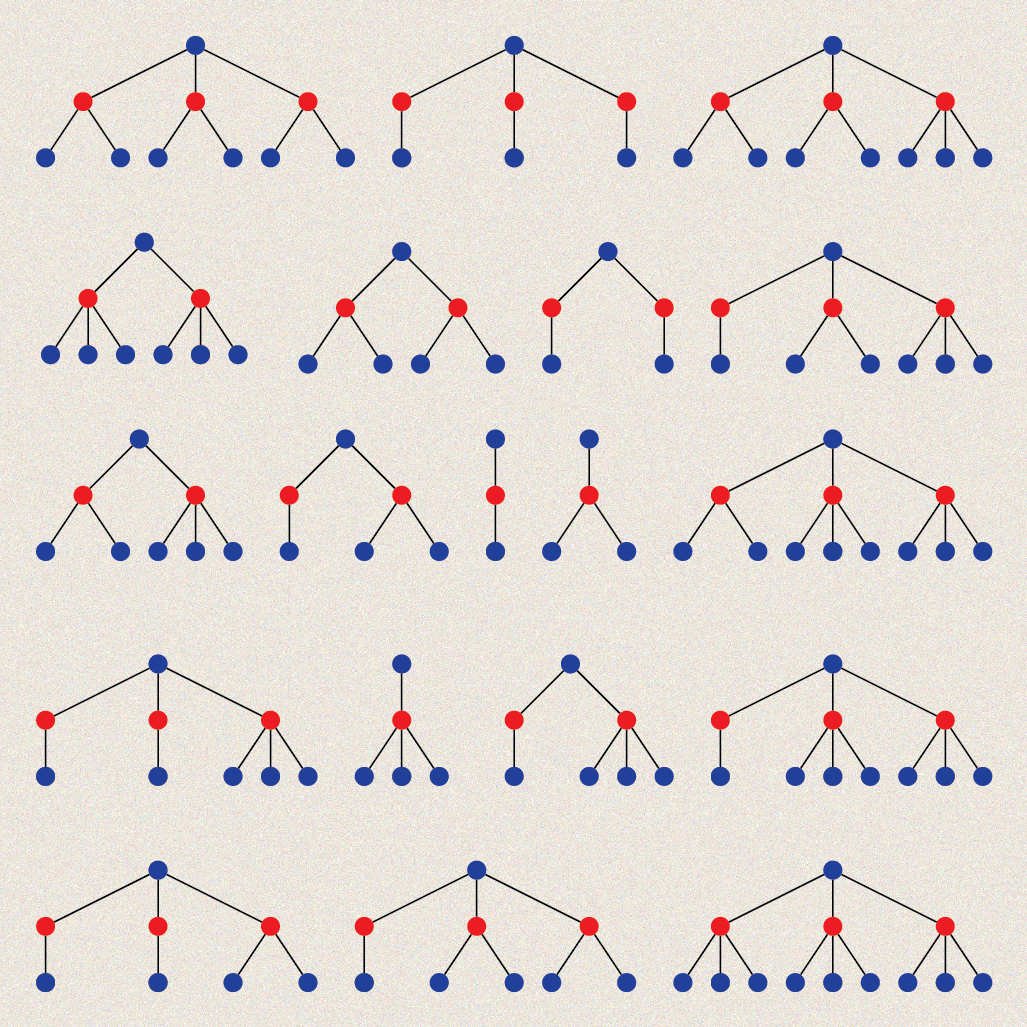



LCP












In life, there are few rules
Networks of gene regulation govern morphogenesis, determine cell identity and regulate cell function. But we have little understanding, at the local level, of which logics are biologically preferred or even permitted. To solve this puzzle, we studied the consequences of a fundamental aspect of gene regulatory networks: genes and transcription factors talk to each other but not themselves. Remarkably, this bipartite structure severely restricts the number of logical dependencies that a gene can have on other genes. We developed a theory for the number of permitted logics for different regulatory building blocks of genes and transcription factors. We tested our predictions against a simulation of the 19 simplest building blocks, and found complete agreement. The restricted range of biological logics is a key insight into how information is processed at the genetic level. It constraints global network function and makes it easier to reverse engineer regulatory networks from observed behavior.
Submitted (2024)